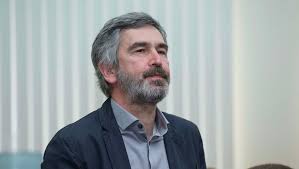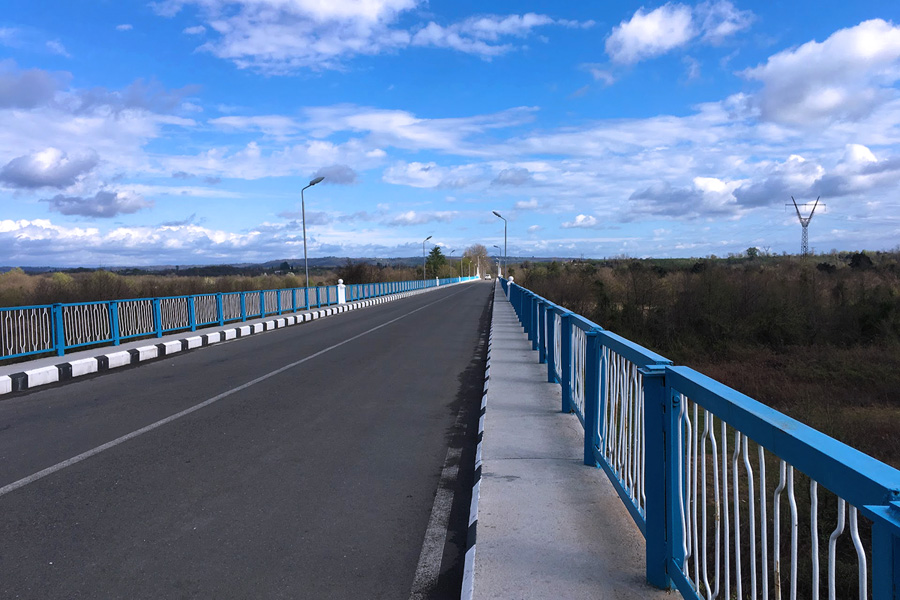Civil Sector Under Attack in Abkhazia
The article was originally published on the website of the Georgian Foundation for Strategic and International Studies (Rondeli Foundation). The title, text, and terminology of the article have been left intact. All rights belong to Rondeli Foundation. Publication date: 2022 / 09 / 28.
After the end of the 1992-1993 Abkhazian war, the local civil sector in the de facto Republic of Abkhazia became a reasonably considerable force, which, with the support of international organizations, has been actively involved both in the daily life of Abkhazia and in the Georgian-Abkhazian civil dialogue process for the past three decades. This did not change even after the 2008 Russian-Georgian war. However, from November 2021, the activities of non-governmental organizations in the occupied Abkhazia region have been under threat, with the production of such policies intensifying, the ultimate goal of which is assume full control over the activities of the local civil sector and international organizations.
The Law on “Foreign Agents”
International organizations do not recognize Abkhazia as a subject of international law, however, Western organizations and foundations, with the consent of the Georgian government and with the involvement of the local civil sector, are actively implementing various projects on the occupied territory. Those in Abkhazia have always feared that Official Tbilisi could at any moment stop the activities of international organizations in the de facto republic and, therefore, access to Western funds, yet the threat comes from another side – from Russia.
On November 12, 2020, the ‘Program for the formation of a single social and economic space between the Russian government and the de facto authorities of Abkhazia, based on the harmonization of the legislation of Abkhazia with the legislation of Russia’ was approved. As per the 37TH measure of the program, the Abkhazian “legislation” should come into conformity with the Russian legislation, which will regulate the activities of non-profit organizations and “foreign agents.”
Since 2012, Russia has been granting the status of “foreign agent” to those organizations and individuals who receive support from abroad or are under foreign influence. This issue became relevant in Abkhazia in November 2021, when Inal Ardzinba, a former high-ranking official of the Russian Presidential Administration, was appointed as the Minister of Foreign Affairs of the de facto regime.
What Does Ardzinba Dislike and What Does He Demand?
In Abkhazia, they believe that Inal Ardzinba is a “man of Moscow” who has good connections and support in the Kremlin. Control over the activities of non-governmental and international organizations is dictated by Russia, which wants to establish Russian rules in the de facto republic. Ardzinba has to show that he can pursue Russia’s interests and, therefore, gain the status of the most important person in the Russian-Abkhazian relationship.
According to Ardzinba, they are already working on the development of a draft law on non-profit organizations and public associations. The purpose of the draft law is to increase the activity and financial transparency of these organizations so as to ensure non-interference in the internal activities of the de facto republic, which actually means establishing full control over the activities of the local civil sector and international organizations.
Ardzinba has made many critical remarks towards international organizations. As per his assessment, the activities of these organizations are aimed at obtaining intelligence and promoting the implementation of the Engagement without Recognition Strategy (referring to the European Union’s strategy, which includes involvement in the conflict regions of Georgia in terms of providing humanitarian and economic aid, without recognizing the status of those regions). He claims the main goal of these organizations is the soft integration of Abkhaz society into Georgian society through humanitarian aid, conferences, educational trainings, and active work with young people.
Inal Ardzinba’s request is that the main field of their activities should be humanitarian and not include political projects. Further, that these organizations should agree on projects on the territory of Abkhazia in advance and submit reports on their implementation, lists of employees, and data on sources of financing. There is a similar requirement when it comes to the preparation of meetings with the Georgian side or the implementation of any kind of project.
Ardzinba’s Campaign of Attack
Inal Ardzinba has made direct attacks on international organizations. Below are some examples:
Response of Non-Governmental Organizations
At the initial stage, Ardzinba’s initiatives were met with harsh evaluation by local civil society. Hundreds of people signed an appeal to the de facto authorities, expressing their concern that the debate over the “foreign agents” law had reached a new level, and that the adoption of such a law would bring negative results and damage the international image of the de facto republic. Yet, recently, protests on this issue have calmed down and civil sector discontent is less heard in the public space.
The “Public Defender,” Asida Shakril, also disagrees with the adoption of the law on “foreign agents.” On June 8, 2022, during his annual report before the de facto parliament, he said that the public is confused by the idea of the need to adopt a law on “foreign agents,” one which does not reflect the Abkhazian reality. According to Shakril, this initiative is aimed at on the one hand limiting Abkhazia’s external ties, and on the other hand, limiting rights and freedoms within Abkhazia.
What Others Say
Unlike Ardzinba, other leaders of the de facto regime are less critical of the activities of international organizations. They do not publicly criticize their presence, and see opportunities for developing relations with the outside world. For example, on April 13, 2022, de facto Prime Minister Alexander Ankvab hosted a delegation of the United Nations Development Program. Ankvab thanked the guests for their help in the fight against the pandemic and discussed issues of cooperation in the field of healthcare and agriculture.
What They Say in Russia
As a rule, Moscow avoids criticizing the de facto government of Abkhazia in the public space. In this regard, most active are the Russian “ambassadors” in Abkhazia, who periodically make critical statements. Strangely, a lot of criticism was heard on May 25 at a Russian-Abkhaz working meeting of the Committee for Commonwealth of Independent States Affairs, Eurasian Integration and Relations with Compatriots of the Russian State Duma. Ardzinba also attended the meeting. The Chairman of the Committee, Leonid Kalashnikov, reprimanded the Abkhazian side for the slow pace of adopting the legislation on “foreign agents”.
Main conclusions
What Could Prevent This?
The intensification of the campaign against international organizations and relatively passive opposition within the de facto republic on this issue indicates that the situation for the local civil sector and international organizations is set to become even more difficult. The most important factor that can stop/slow down this process is the defeat of Russia in Ukraine, during which this issue will lose its meaning and relevance for the Kremlin.


